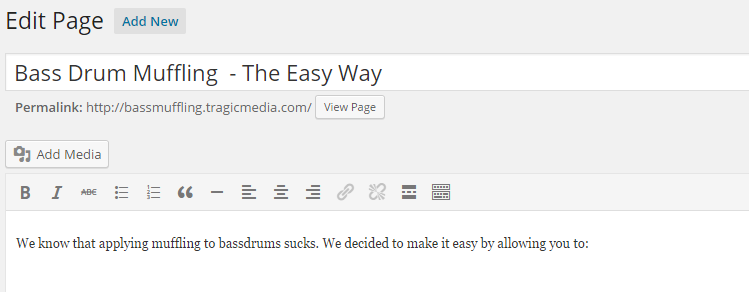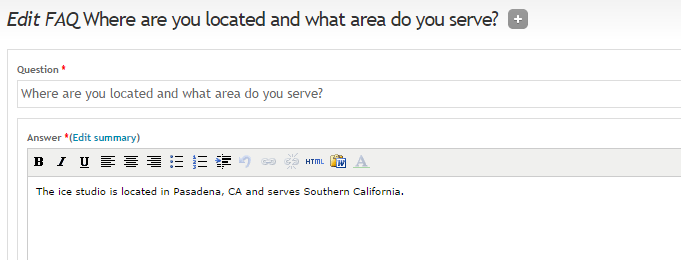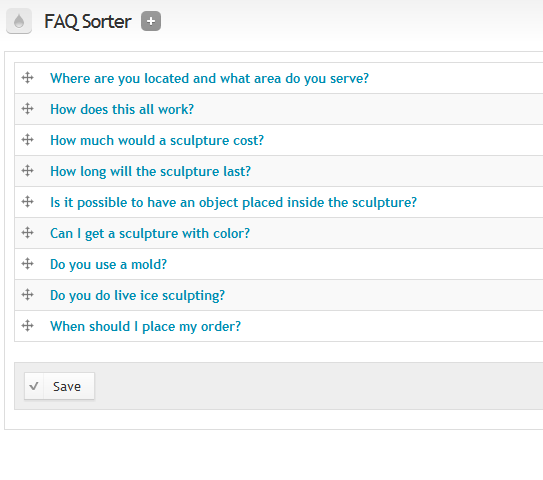Some of the greatest improvements to the web are the tools that make it easy for anyone to easily share content with the world. There now are thousands of ways to publish on the Internet. As web developers it is our job to stay up-to-date with the best of them.
These tools each have unique strengths and weaknesses. Meanwhile, our clients each have different needs and requirements for their businesses. Because of this, we work with several systems to avoid being stuck with one-size-fits-all solutions. We are experts at multiple web publishing platforms, which allows us to recommend and implement the best tool to accomplish our clients' specific functional requirements.
What are those tools? Two of the best and most popular open-source Content Management Systems (CMS) are Drupal and WordPress.
In a general sense, WordPress and Drupal are similar. They are both open source content management systems which make it easy for non-technical users to publish content online. In practice, each works in a specific way and allows for specific functionality. This makes it important to consider the strengths and weaknesses of each system in order to choose the best tool for your site.
You may be asking yourself, "Which CMS should I choose for my website, Drupal or Wordpress"? Lets take a look at the difference between the two platforms to help you determine which CMS will be the best fit for your new website.
Wordpress
If we could describe WordPress in a few words (no pun intended), it would be "Easy to setup, difficult to customize." WordPress is best at getting websites up and running quickly and with less hassle. WordPress comes with features ready to use, including writing blog posts and creating categories to sort them.
If your website needs to work the way WordPress is already does, great! Editing blog posts, categories, and simple pages is easy. In this situation, WordPress is a great choice.

But if the website has more types of content than blog posts and pages, working with WordPress can get dicey. WordPress's core feature set was not meant to create content like products, menus, or pages with unique, easily editable layouts. At it's core, WordPress is a blogging engine. Trying to do too much with WordPress can lead to it becoming difficult to use.
There are options though. WordPress can rely on software called plug-ins to do more stuff. However, often these plugins are created by outside companies, which makes it difficult and expensive to customize how they work. Also, WordPress does not have a very advanced versioning system. If too many 3rd party plugins are used on a site it will often lead to compatibility problems when trying to keep the software up-to-date, which leads to security risks down the road.
The good news is when a project has advanced content or e-commerce requirements, Drupal is a great solution!
Drupal
Sometimes websites have more complicated needs than simple blog entries and pages. Drupal can be described as "More work to setup, but makes complex sites easier to manage."
For example, many of our clients provide a list of frequently asked questions on their websites to help potential customers. Once a place for FAQs has been created, adding a new one is easy! Simply go to Add Content > New FAQ, and type in the question and answer to create one.

You can even create a custom administrative page to re-order your custom content.

Whatever type of content you need to display, Drupal can be customized to handle it.
For example, an owner of a pet store could categorize products by type of pet. Or, want to feature an important bit of news in a special place on the website homepage? Simply click a box, and Drupal does the rest. This is all accomplished with Drupal, without any plug-ins maintained by private, for-profit companies.
Additionally, Drupal modules must adhere to Drupal's security and coding standards along with a number of other criteria before becoming a project. Both Drupal's core system as well as its modules follow an advanced versioning system for better compatibility and long-term security.
Final words
Whatever CMS you decide to use for your website, what is most important is finding the right piece of software to make updating content as easy as possible. Every website is different, so you should never rely on just one tool for everything. Instead, your development toolbox should be filled with different types of tools so that you can always choose the best solution for your clients.

